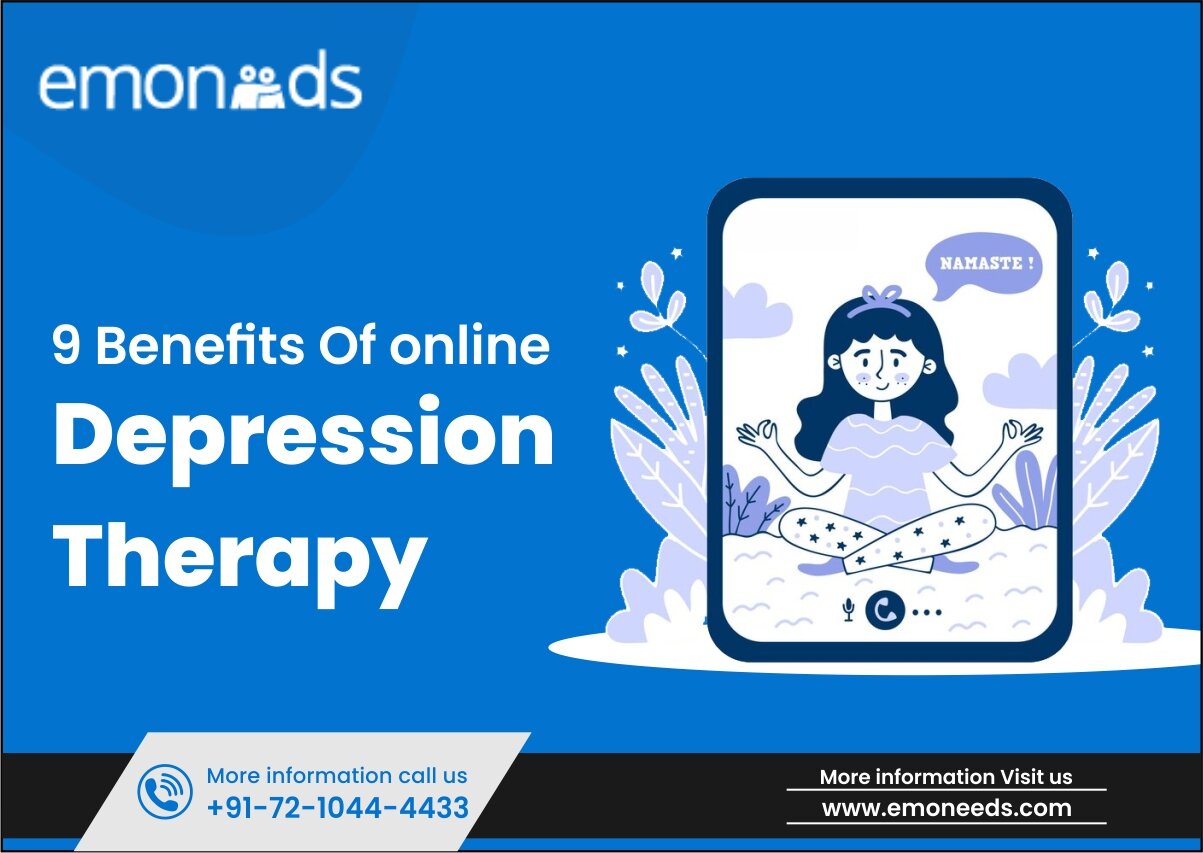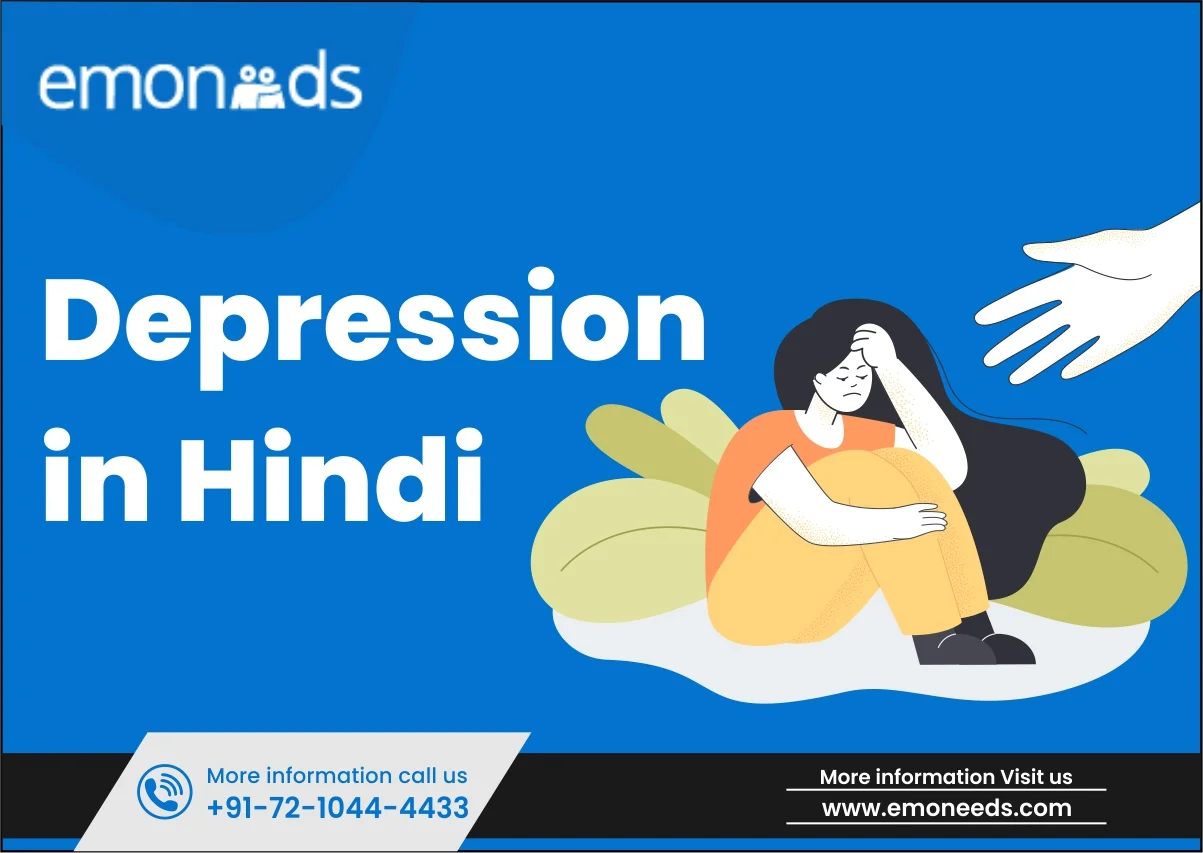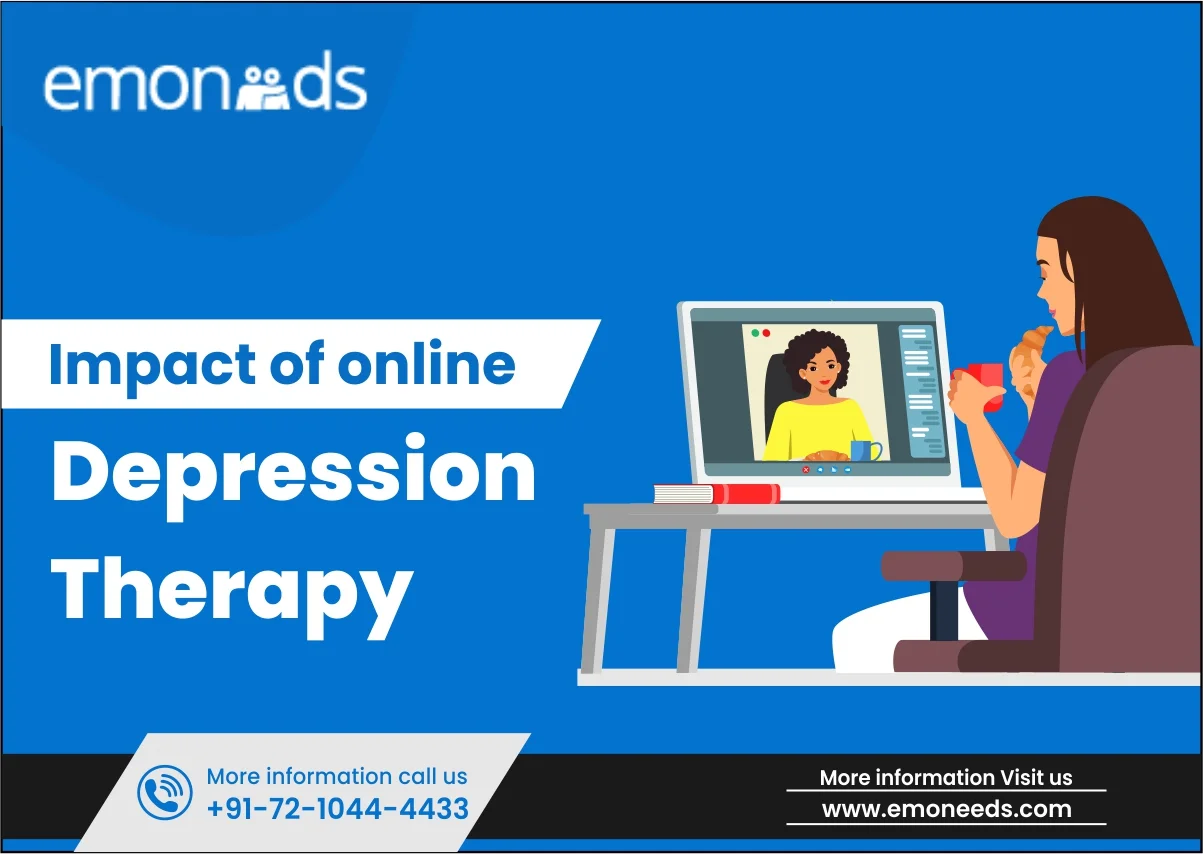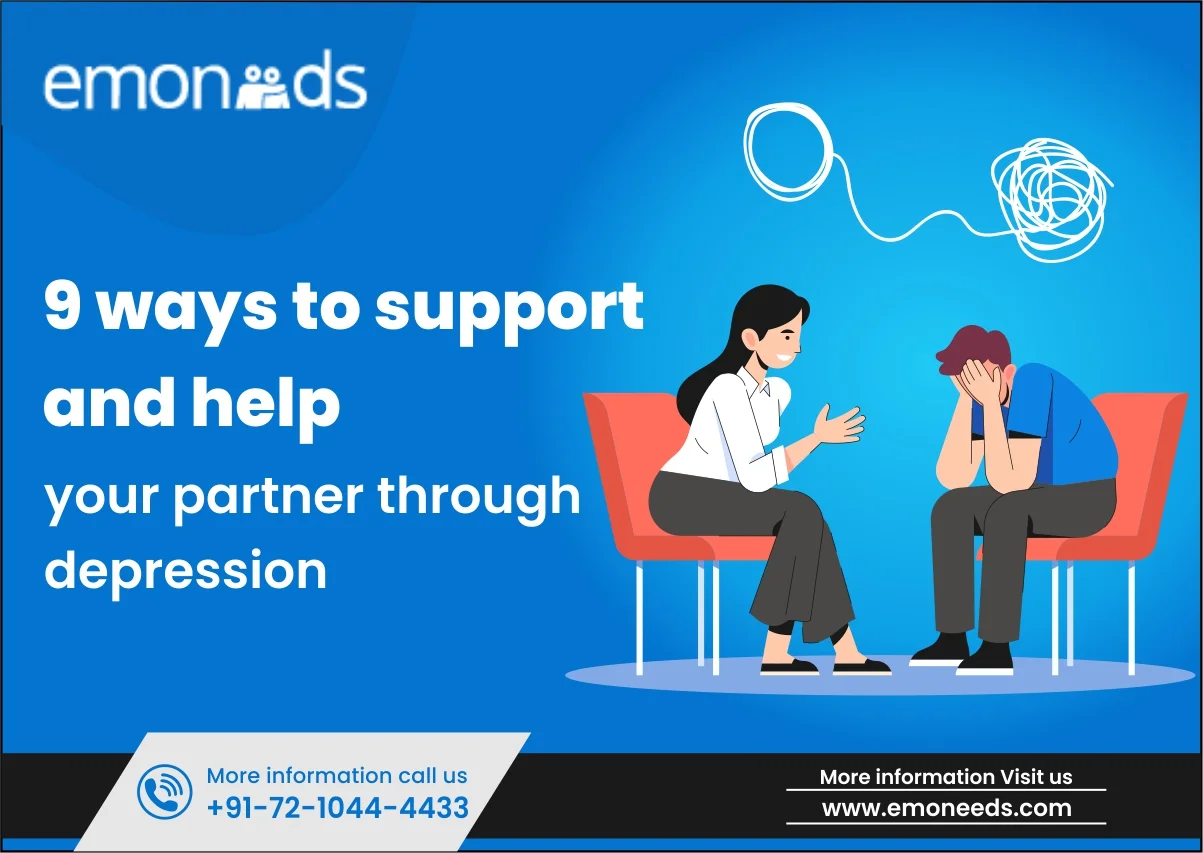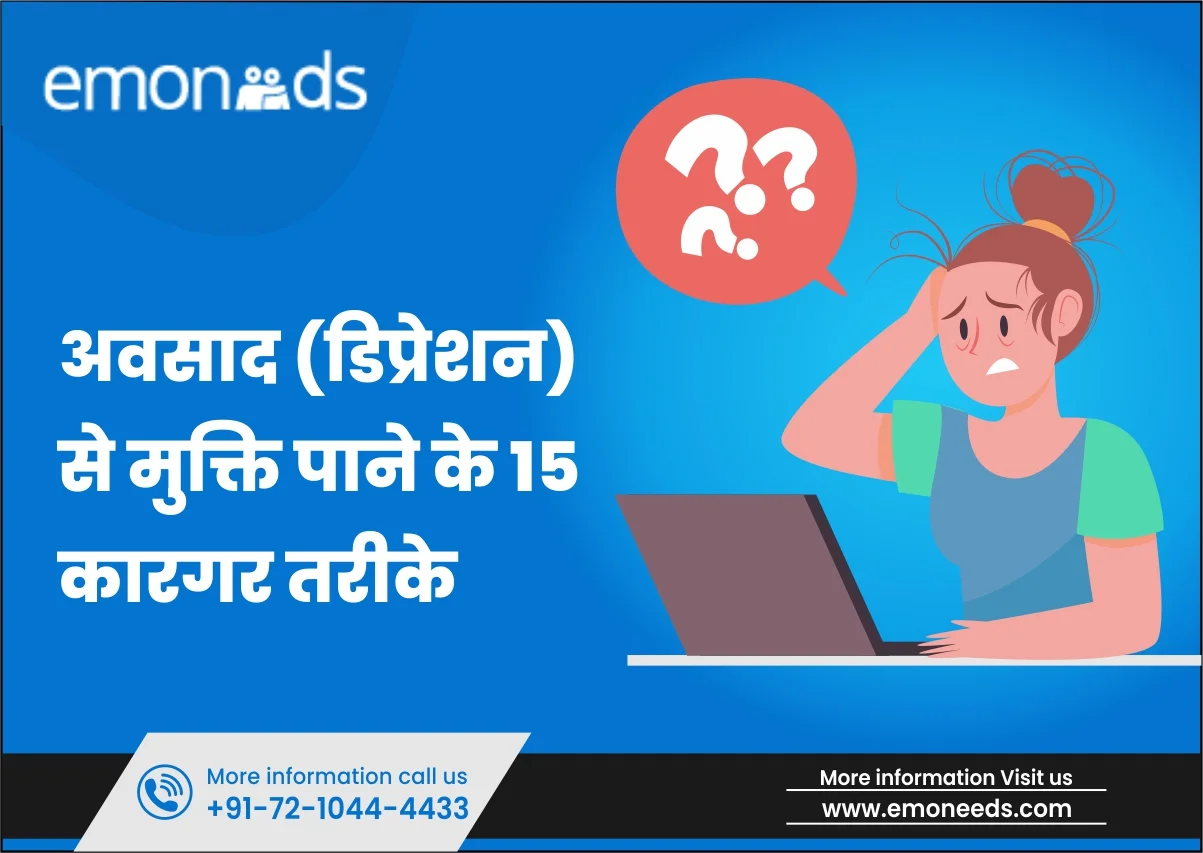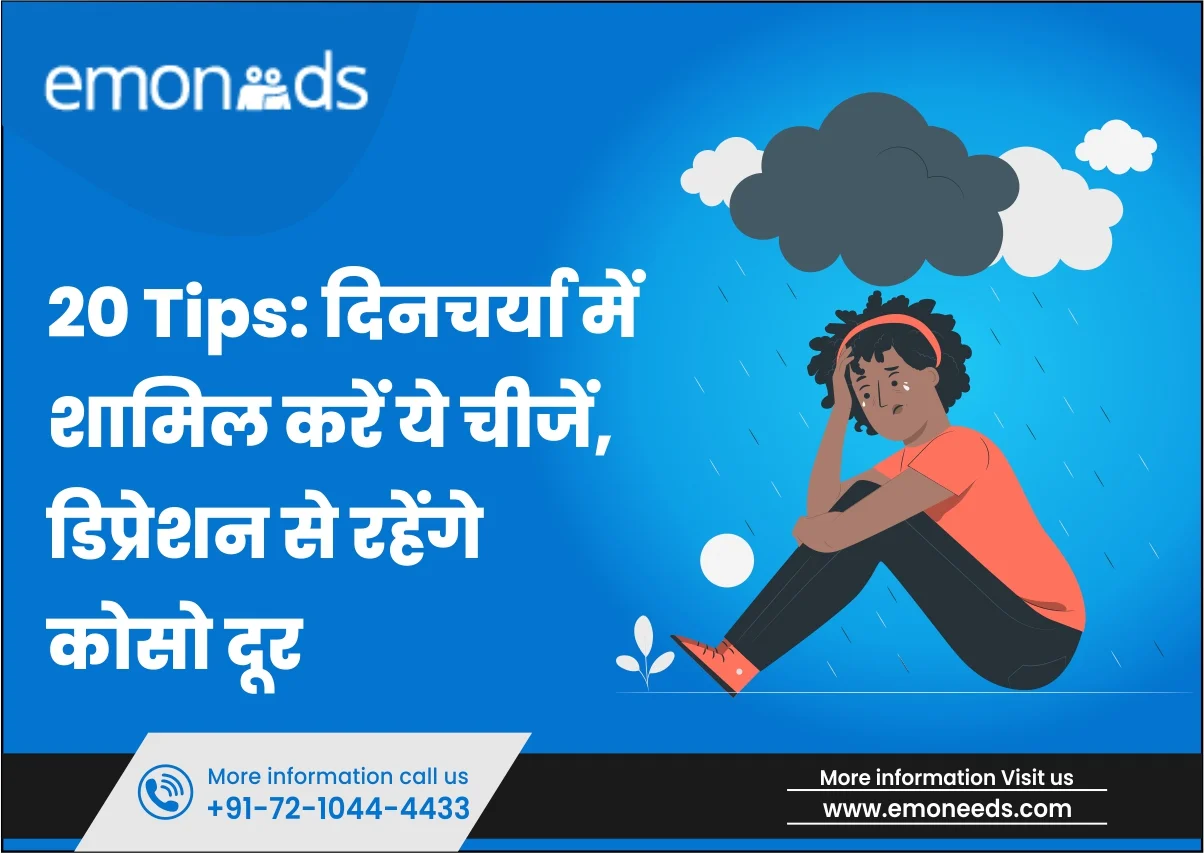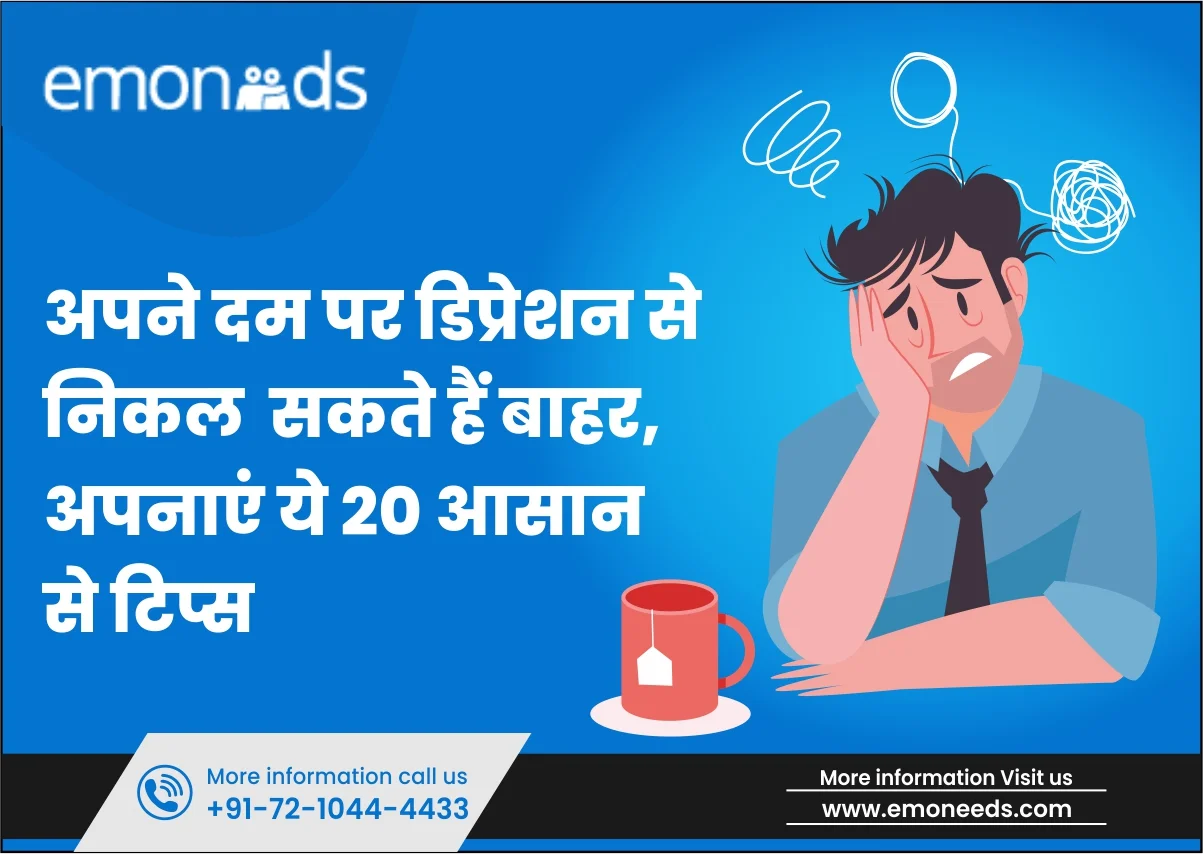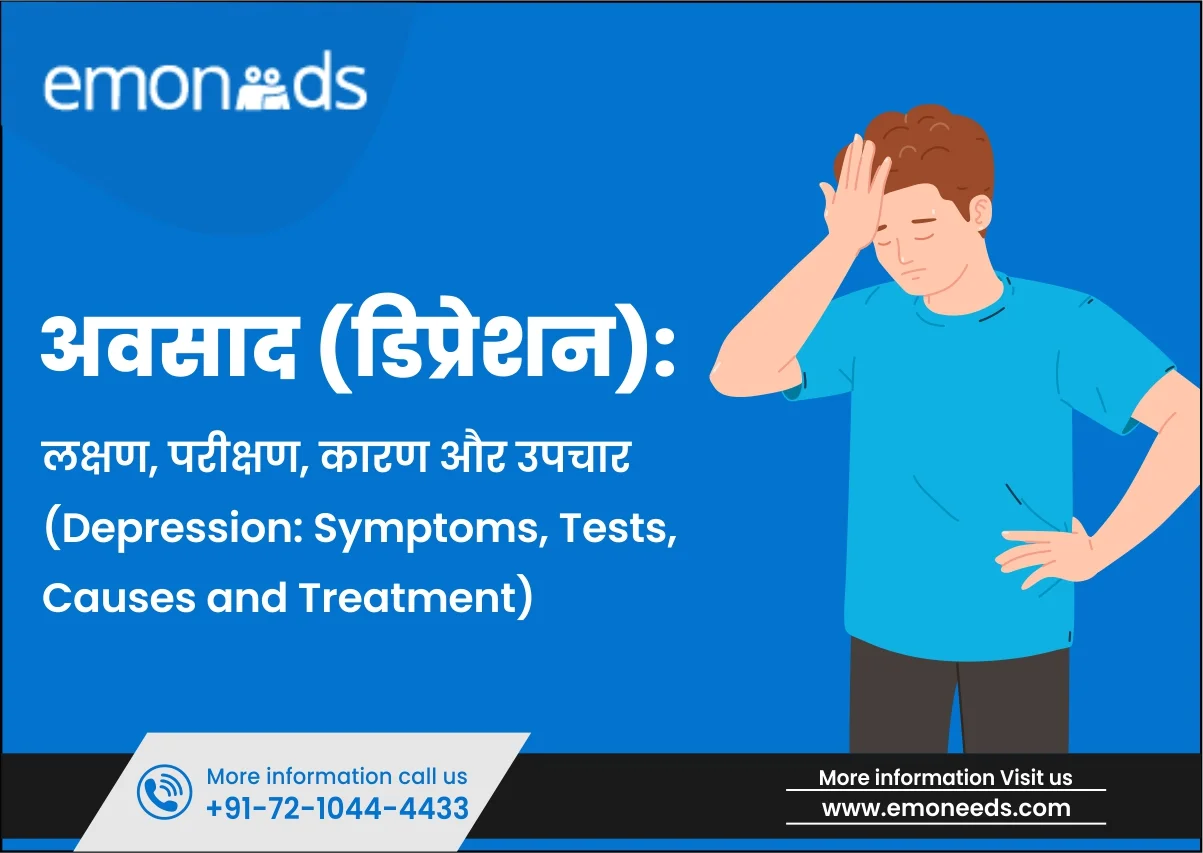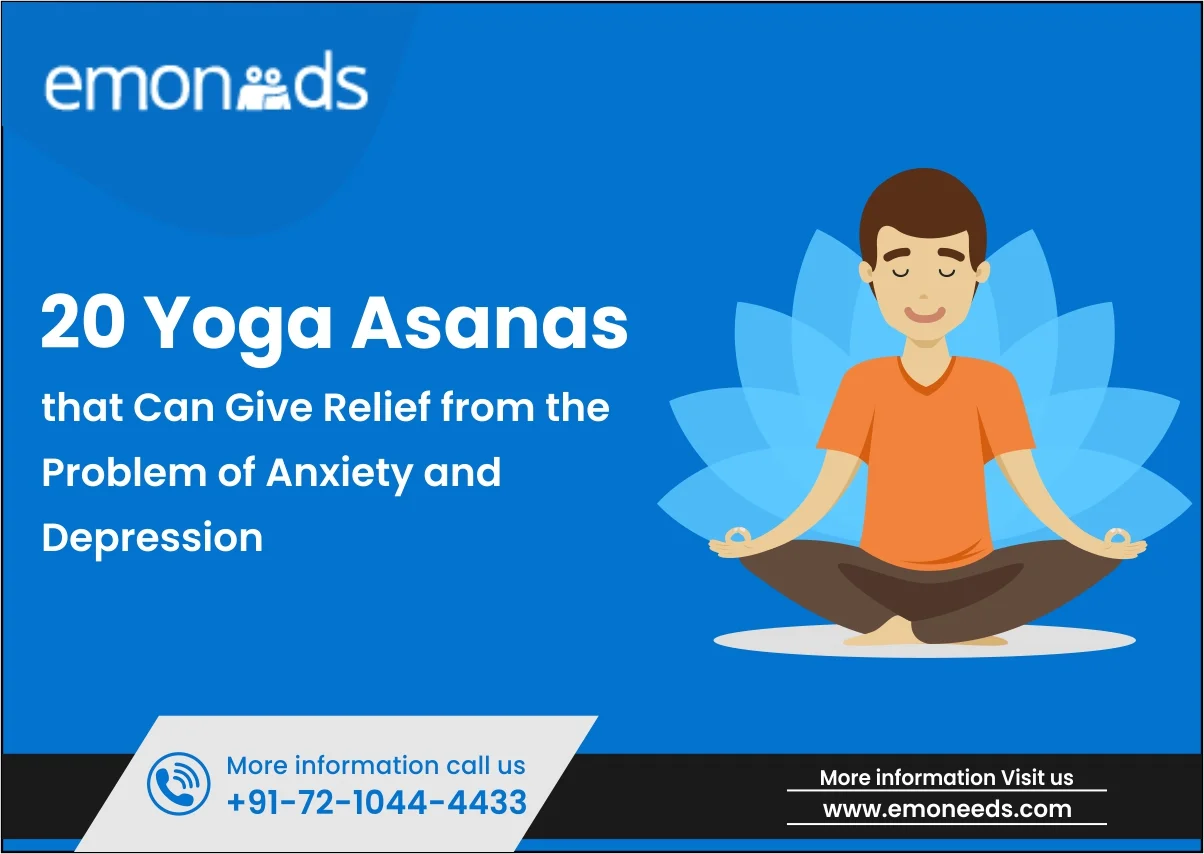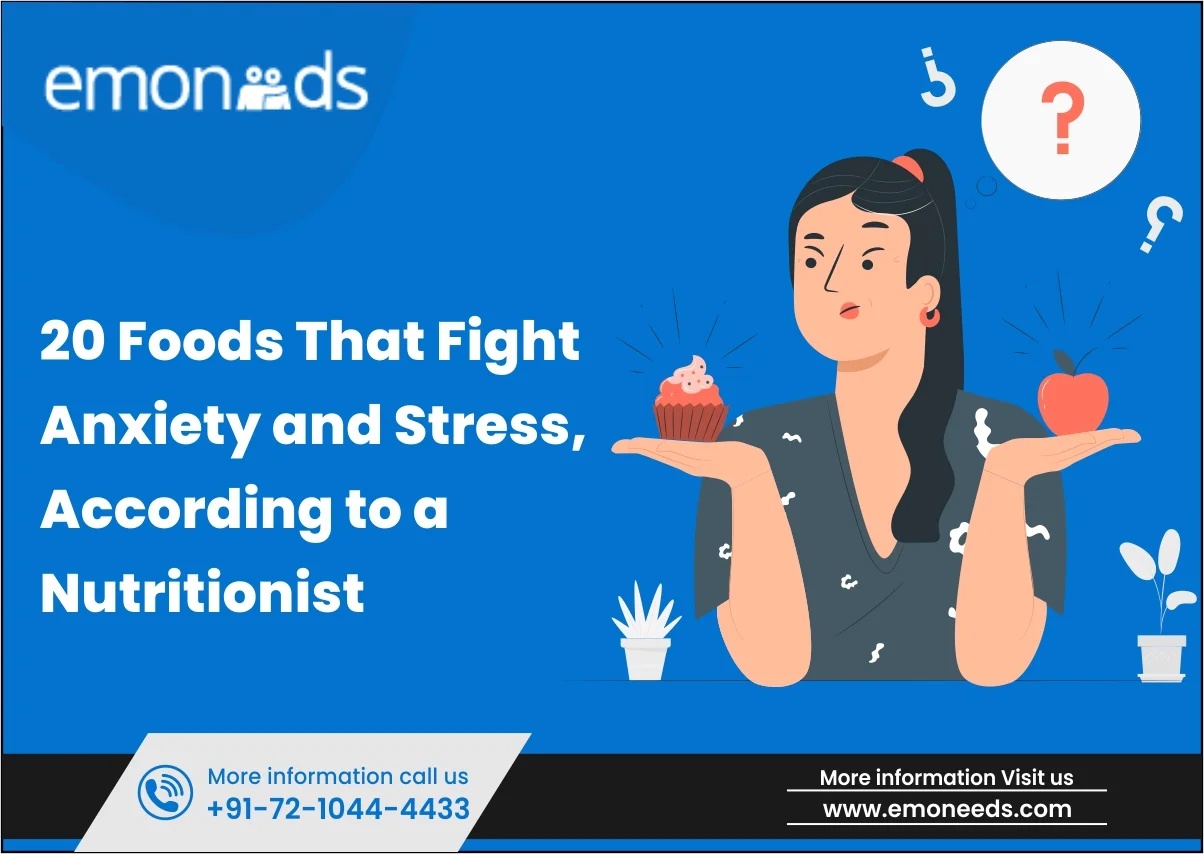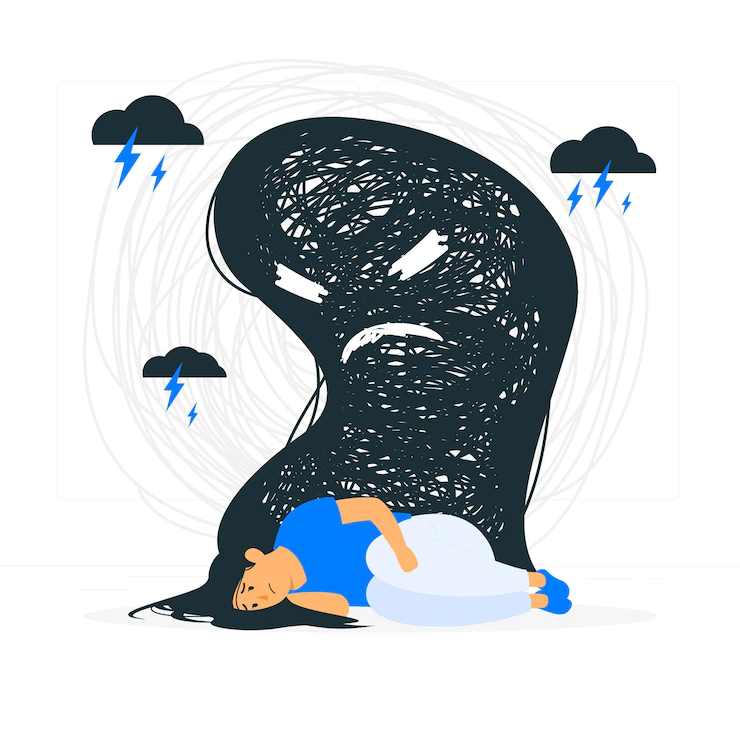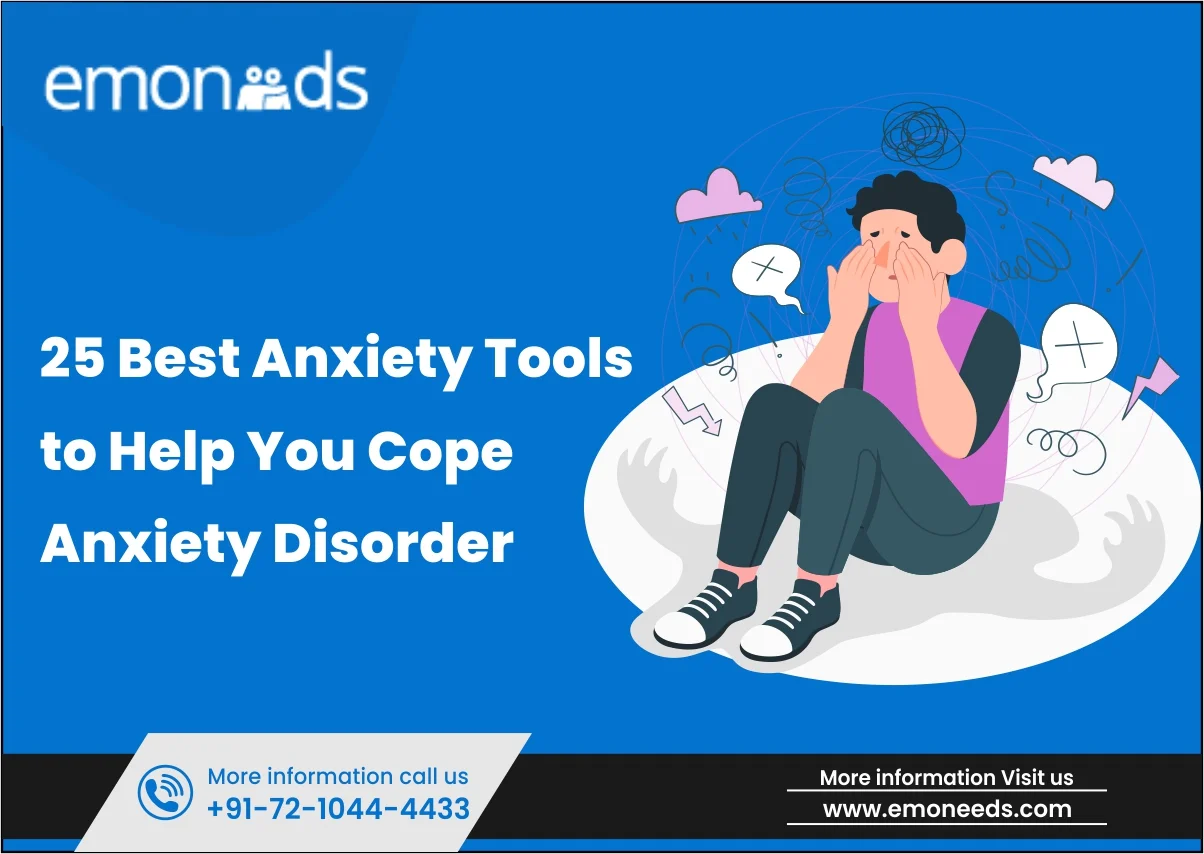
Anxiety can strike at any moment, leaving you feeling overwhelmed and powerless. Living with anxiety can be a formidable challenge, and for those dealing with an anxiety disorder, it can feel like a constant battle. That’s where coping tools come into play which help you navigate life’s twists and turns. In this blog, we’ll explore a curated list of 25 of the best anxiety tools to help you cope with anxiety disorder.
Understanding Anxiety
Anxiety, in its various forms, is a natural response to stressors and challenges we encounter. However, when anxiety becomes chronic or overwhelming, it can develop into an anxiety disorder, affecting our quality of life.
Anxiety disorders come in many shapes and sizes, but they often share common symptoms and triggers. These can include persistent worry, excessive fear, rapid heartbeat, muscle tension, restlessness, and difficulty concentrating. Anxiety can be triggered by situations, places, or even thoughts, making it a formidable adversary in our daily lives.
25 Best Tools for Anxiety Disorder
1. Deep Breathing Exercises
The practice of slow, deliberate breathing activates the body’s relaxation response, calming the nervous system and reducing the grip of tension. As you inhale deeply, you provide your brain and body with more oxygen, fostering a sense of calm that can be remarkably effective in moments of distress.
2. Progressive Muscle Relaxation
This technique involves systematically tensing and then releasing each muscle group, from head to toe. By doing so, you can alleviate the physical tension that often accompanies anxiety.
3. Guided Imagery
Guided imagery invites you to envision a serene place or scenario, providing an escape from the turmoil of anxious thoughts. By creating a mental safe haven, you can temporarily distance yourself from your worries, allowing your mind to find solace and rejuvenation.
4. Mindful Meditation
Mindfulness meditation teaches you to stay present in the moment, fostering a sense of calm even amid life’s chaos. It encourages non-judgmental awareness of your thoughts and feelings, helping you gain perspective and reduce the intensity of anxiety.
5. Healthy Diet
Opt for a balanced diet rich in nutrients that support your mental well-being. Incorporating whole grains, lean proteins, fruits, and vegetables can provide a solid foundation for emotional resilience.
6. Quality Sleep
Create a calming bedtime routine, limit screen time before bed, and maintain a consistent sleep schedule to improve your sleep quality and overall emotional well-being.
7. Limiting Caffeine and Alcohol
Both caffeine and alcohol can exacerbate anxiety symptoms. By reducing or eliminating their consumption, you can experience noticeable improvements in your mood and overall anxiety levels.
8. Reducing Sugar Intake
Sugar crashes can trigger anxiety-like symptoms, leading to mood swings and irritability. Moderating your sugar intake can help stabilize your mood and prevent these energy fluctuations.
9. Identifying Cognitive Distortions
Cognitive distortions are irrational thinking patterns that fuel anxiety. Learn to recognize and challenge these distortions to gain a more accurate and balanced perspective on your thoughts and fears.
10. Positive Affirmations
Replace negative self-talk with positive affirmations to boost self-esteem and resilience. Repeating affirmations that resonate with you can rewire your thought patterns, fostering a more positive self-image.
11. Distraction Techniques
Engage in activities or hobbies that divert your focus away from anxiety. Whether it’s reading, painting, or simply going for a walk, these distractions can provide a much-needed break from anxious thoughts.
12. Exposure Therapy
Gradual exposure to anxiety triggers can help desensitize you over time. By facing your fears in a controlled and systematic manner, you can build confidence and reduce the intensity of your anxiety responses.
13. Thought Records
By writing down your anxious thoughts and examining their accuracy, you can gain valuable insights into the irrational beliefs that underlie your anxiety.
14. Self-help CBT Workbooks
Cognitive Behavioral Therapy (CBT) workbooks offer structured exercises that guide you through the process of reshaping your thinking patterns.
15. Joining Support Groups
Support groups offer a safe space to connect with individuals facing similar challenges, fostering a sense of community and understanding.
16. Seeking Help from Friends and Family
Sharing your feelings and seeking comfort from friends and family can help you feel less alone in your battle against anxiety.
17. Emotional Support Animals
Pets, often known as emotional support animals, can provide companionship and emotional relief, effectively reducing anxiety.
18. Self-Help Books for Anxiety
Self-help books written by experts in the field can provide valuable insights and actionable techniques to help you navigate the challenges of anxiety.
19. Calming Music Playlists
Music has a remarkable ability to influence your mood, and curated playlists can provide a calming soundtrack to your life, helping you relax and manage anxiety more effectively.
20. Aromatherapy
Certain scents, such as lavender and chamomile, have been shown to promote relaxation. Incorporating aromatherapy into your daily routine through essential oils, candles, or diffusers can provide a sensory escape from anxiety.
21. Gardening Therapy
Gardening is a therapeutic activity that can reduce stress and anxiety while fostering a sense of accomplishment as you watch your garden bloom.
22. Digital Detox
Set aside dedicated time to disconnect from electronic devices, allowing your mind to reset and rejuvenate.
23. Warm Baths or Showers
Soaking in a warm bath or taking a soothing shower can ease physical tension, making it an excellent addition to your anxiety management toolkit.
24. To-Do-Lists
Creating to-do lists allows you to break down your responsibilities into manageable steps, making it easier to prioritize and accomplish your goals while reducing anxiety about forgotten tasks or deadlines.
25 Professional Help
Seeking help from mental health professionals is a crucial step in managing anxiety. They can provide guidance, therapy, and support tailored to your specific needs.
Online Platforms like Emoneeds as a Source of Professional Help
In today’s digital age, access to professional help has expanded beyond traditional face-to-face therapy. Online platforms like Emoneeds offer a convenient and accessible way to connect with mental health professionals. You can engage in therapy sessions, access resources, and find a supportive community—all from the comfort of your home. This digital avenue ensures that help is just a click away, breaking down barriers that may have once hindered your journey toward anxiety management.
Conclusion
Anxiety is a formidable foe, but armed with the right tools, you can regain control over your life. We’ve explored 25 strategies to help you navigate the labyrinth of anxiety, and remember, your toolkit is entirely personal. Experiment with these techniques, mix and match, and discover what works best for you. There’s hope, and managing anxiety effectively is not only possible but within your reach. As you embark on this journey, remember that you’re not alone—support is available, whether from loved ones or online platforms like Emoneeds. Together, we can face anxiety head-on and emerge stronger.
